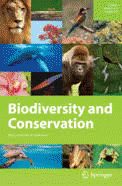Tree species in agroforestry ecosystems contribute to the livelihoods of rural communities and play an important role in the conservation of biodiversity. Unless agroforestry landscapes are productive, however, farmers will not maintain or enhance the range and quality of tree species in them, and both income opportunities and biodiversity will be lost. Productivity depends on both tree species diversity and genetic (intra-specific) variation, but research on the latter has until recently not received the recognition it deserves. Worse, when knowledge on tree genetic variation in agroforestry systems has become available, it has not generally been linked in any systematic way with management, indicating a disjunction between research and field-level practice. In this essay, we attempt to bridge this gap by considering three questions: why is genetic diversity important in tree species What is our current state of knowledge about intra-specific variation in trees in agroforestry systems And, finally, what practical interventions are possible to support the conservation of this diversity in agricultural landscapes, while enhancing farmers livelihoods A wide genetic base in agroforestry trees is essential to prevent inbreeding depression and allow adaptation to changing environmental conditions and to altering markets for tree products. Recent evidence shows, however, that many species are subject to poor germplasm collection practice, occur at low densities in farmland, and are found in highly aggregated distributions, all of which observations raise concerns about productivity and sustainability. A range of germplasm-access based interventions is necessary to improve current management, including the enhancement of community seed- and seedling-exchange networks, and the development of locally based tree domestication activities. Equally necessary, but more difficult to address, is the development of markets that support genetic diversity in tropical tree species; we discuss approaches by which this may be undertaken.
DOI:
https://doi.org/10.1007/s10531-008-9516-z
Altmetric score:
Dimensions Citation Count:

Publication year
2009
Authors
Dawson, I.K.; Lengkeek, A.; Weber, J.C.; Jamnadass, R.H.
Language
English
Keywords
agroforestry systems, biodiversity, genetic variation, trees, tropical forests, conservation, livelihoods
Geographic
Kenya, Mali























